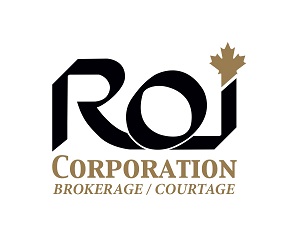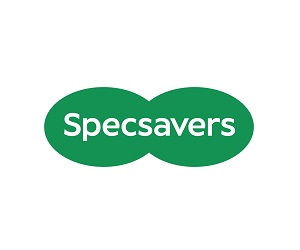
With the ever-growing size and complexity of practice transactions, the level of scrutiny selling owners find themselves under has increased. What looks like a very simple operation from the inside is not so straight forward to those on the outside looking in.
Transactions that would ordinarily have taken 3 months to complete have for a multitude of reasons increased to 4 – 6 months. First, risk tolerance of inexperienced buyers is extremely low, they often shell out vast sums of money to consultants that will seek to justify these fees.
Next, landlords and the assignment or negotiation of leases can absorb significant time at the tail end of a transaction. And finally, interest rate hikes and the associated eroding margins have made financing deals tighter and meant increased scrutiny from financiers. All this said, the acquisition of a profitable practice by an owner/operator remains one of the most lucrative financial vehicles in our complicated economy. That’s why it is so important that when picking a buyer, a selling practice owner chooses one that will deliver.
Extravagant offers are not worth the paper they are printed on if they are ill-conceived.
Most vendors have a significant vested interest in the legacy of their practice that goes far beyond the purchase price. We encourage all our vendors to demand a conditional offer, rather than a letter of Intent. As the name suggests, conditional offers give a purchaser the confidence to place an offer on a practice knowing they have conditions in place to correctly understand the target acquisition before completing the sale.
What most people fail to grasp and what Letters of intent don’t appropriately ponder is the existence of conditions to afford comfort to the vendor and allow them an opportunity to have a stake in the tempo a deal takes and in extreme cases an off ramp if they don’t like the direction things are going.
In representing vendors we take great comfort cosigning all conditions and having satisfaction about the status of the terms in our own right as opposed to making the contentment of the purchaser the overarching focus of any transaction.
A vendor should be able to counter examine the purchaser and their intentions just as a vendor is put under the microscope in the form of financial and clinical due diligence. An experienced broker will guide a vendor in an examination of the following, allowing the vendor to build a comfort level with a buyer prior to an offer being accepted or a firm deal going through.
These points are not mutually exclusive, and the list is not exhaustive.
- Look at any other offices owned by the buyer. If they are an associate, who do they work with? Have they built tenure in one location, or are they more of a journeyman?
- Understand who the buyer intends to work with and verify the credibility of these individuals. Who is their lawyer, banker and accountant?
- Engage the associated lawyers, bankers and accountants and understand that they are well intentioned. Do they like the deal for their client? Ask them directly!
- Quantify what the buyer’s due diligence looks like and find out who they plan to hire to conduct it. I have seen perfectly good purchasers take bad advice from overzealous consultants, causing them to lose out on deals.
- Determine the estimated assignment costs and prepare to absorb them. They are usually small, but they should never be a surprise.
- Prepare for an unreasonable landlord and hope for reason to prevail. Landlords are pricklier than ever, and they usually want a personal indemnity.
- Find out how buyers’ transactions played out if they’ve purchased offices before. The industry is small, and reputations last. Acquisition histories can be determined from brokerage records and anecdotal evidence. It is a big red flag if there is a history of multiple signed offers and a lack of closed transactions.
- Find out how did the previous owner enjoyed the process. There is a story to be told in how a previous acquisition has progressed since the subject individual took possession. We often request a reference from a previous acquisition, and this has helped a vendor sleep better at night.
- Look up the buyer on their provincial regulatory authority. Are there any disciplinary proceedings? These investigations are often trivial in nature, but best believe questions would be asked if the shoe was on the other foot.
- Prepare the buyer for terms of any associate agreement well in advance. Ensure these terms are fair while respecting the wishes of the outgoing vendor. Experience is key. Many of the individuals we sell a practice for will add untold value in the form of goodwill and mentorship post-sale. A properly motivated previous owner is the ultimate glue during a transition. This contribution is impossible to quantify, and buyers would do well to gravitate toward this kind of owner.
- Understand the kind of work they do. Are the styles practiced like yours? Would their philosophy gel with yours and the wider team? A fit is important, and synergies on clinical delivery are helpful to all sides. It’s important for vendors to provide detailed documentation and satisfy all the requests of a buyer. This is what you commit to when you choose to sell a business.
After all, most purchases are share sales and significant corporate and employment legacy is usually inherited. This said, I encourage all vendors to make this conversation a dialogue and know exactly to whom your office being sold.
Many selling owners end up working with this individual for some time and there is an onus on them to prove themselves as an appropriate successor. The happiest clients are the ones that build a great rapport with the new owners. Many vendors have superb assets that would be the envy of many purchasers.
The selected buyer should never forget this important fact. Vendors should consider recruiting the broker, accountant, and lawyer that will fight the hardest for the vendors interests before, during and after this process.
Remember that leverage resides with the selling owner until such a time as they chose to give it up. Buyers should be kept honest, and the dignity of the seller is to be maintained always. The tried and tested way to do this is to expose the opportunity to the open market.

JACKIE JOACHIM
Jackie has 30 years of experience in the industry as a former banker and now the Chief Operating Officer of ROI Corporation. Please contact her at Jackie.joachim@roicorp.com or 1-844-764-2020.



















